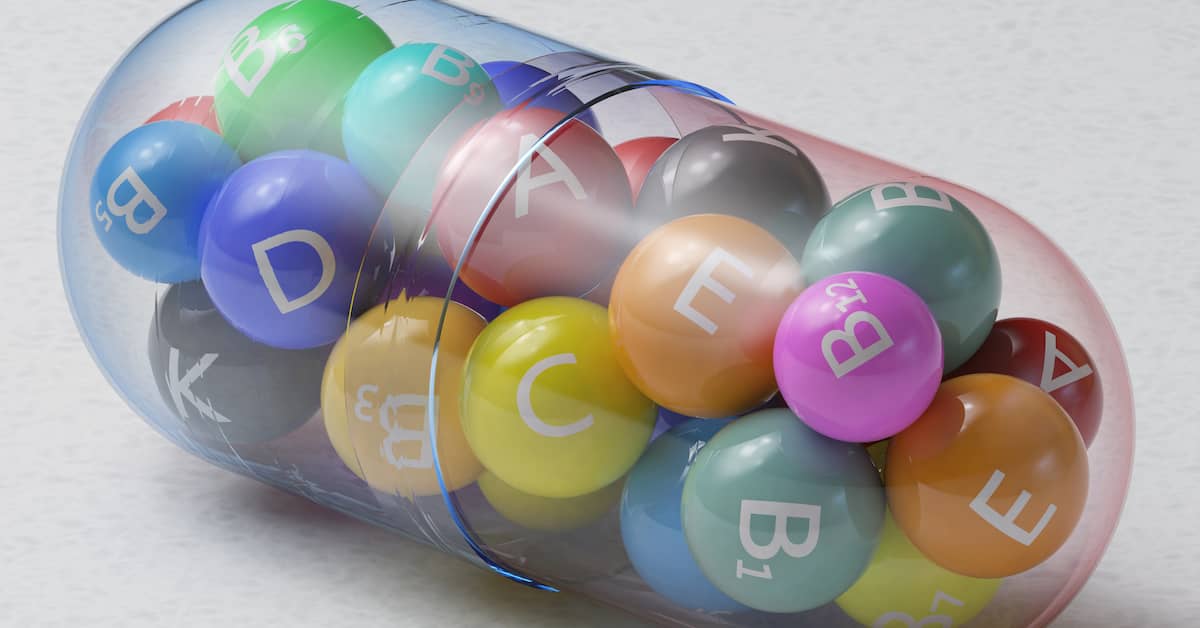
That’s why you eat plenty of fruits and veggies, never miss your morning walk, and always get a good night’s sleep.
But according to groundbreaking new research, there’s something else you should do if you want to keep your mind razor sharp well into your golden years.
And it all comes down to taking a certain wonder pill. Here’s everything you need to know.
We all know that vitamins are good for us. You may even have a vitamin D, C, or E supplement in your medicine cabinet right now.
But according to new research from Wake Forest University School of Medicine, the most important pill to keep your mind sharp as a tack is… a multivitamin!
Multivitamin SLOWS Cognitive Decline 60 Percent!
For the study, published in the journal Alzheimer's & Dementia: The Journal of the Alzheimer's Association, 2,200 senior participants were given either a multivitamin or a placebo. In addition, the subjects underwent cognitive and memory assessments annually during the three-year enrollment period.At the end, the scientists found that the multivitamin group saw a 60 percent slowing of cognitive decline!
Even better?
The benefits were even more substantial in folks suffering from heart disease. This is a massive discovery because having heart disease can put you at greater risk for cognitive impairment and decline.
"There's an urgent need for safe and affordable interventions to protect cognition against decline in older adults," said Laura D. Baker, Ph.D., professor of gerontology and geriatric medicine at Wake Forest University School of Medicine and co-principal investigator of the trial, "Our study showed that although cocoa extract did not affect cognition, daily multivitamin-mineral supplementation resulted in statistically significant cognitive improvement. This is the first evidence of cognitive benefit in a large longer-term study of multivitamin supplementation in older adults."1
Stop ANY Disease?!
This isn’t the first research where multivitamins have shown their value in keeping you healthy. Early studies found the following results:- Improves memory. Two small studies have found that multivitamins can improve memory in seniors.2,3
- Lowers risk of death from heart disease. A 2015 study of women shows that taking a multivitamin for more than three years was linked to a lower risk of dying from heart disease.4
- Lowers risk of cancer. A review of five randomized controlled trials including 47,289 participants showed a 31 percent lower risk of cancer in men using multivitamins.5
- Reduces risk of cataracts. Some research shows that taking a daily vitamin can also reduce your risk of developing cataracts.6
Choosing The Best Multivitamin
If you’re taking a multivitamin, you should know that not all these supplements are created equal.Look for supplements that are made from natural, whole-food sources like fruits and vegetables.
Unless you have issues swallowing pills, steer clear of gummy multivitamins. They’re often loaded with added sugar. They also frequently fall short on numerous nutrients and don’t provide a complete spectrum of vitamins and, specifically, minerals.
Be sure to read labels to investigate how much of your recommended dietary allowances (RDA) of certain nutrients are provided—the closer you get to 100 percent the better.
Everyone's needs are different, but, generally, select a multivitamin that includes vitamins A, C, D3, E, K1 and K2, and all eight B vitamins (thiamin, riboflavin, niacin, pantothenic acid, B6, biotin, folate, and B12).
It’s also important for your multivitamin to contain a full array of essential minerals, including calcium, magnesium, potassium, zinc, and iron, as well as often-overlooked minerals like iodine, selenium, copper, manganese, molybdenum, and chromium. If you find trace minerals like boron and silica that’s even better.
Most people forget that forms of these vitamins are also important. In addition to being food sourced, look for gentle, bioavailable, bioactive forms, such as chelated minerals and methylated B vitamins, as these can help ensure your body makes the most of these nutrients.
Then, check out the overall formulation: Is it vegan, GMO-free, gluten-free? Finally, examine the “other ingredients” list. The shorter this is, the fewer the number of additives the product contains—and that’s good news.
- https://newsroom.wakehealth.edu/news-releases/2022/09/daily-multivitamin-may-improve-
cognition-and-possibly-protect-against-decline - https://pubmed.ncbi.nlm.nih.gov/22939764/
- https://pubmed.ncbi.nlm.nih.gov/22711385/
- https://pubmed.ncbi.nlm.nih.gov/25733474/
- https://www.acpjournals.org/doi/10.7326/0003-4819-145-5-200609050-00135
- https://pubmed.ncbi.nlm.nih.gov/24590236/
